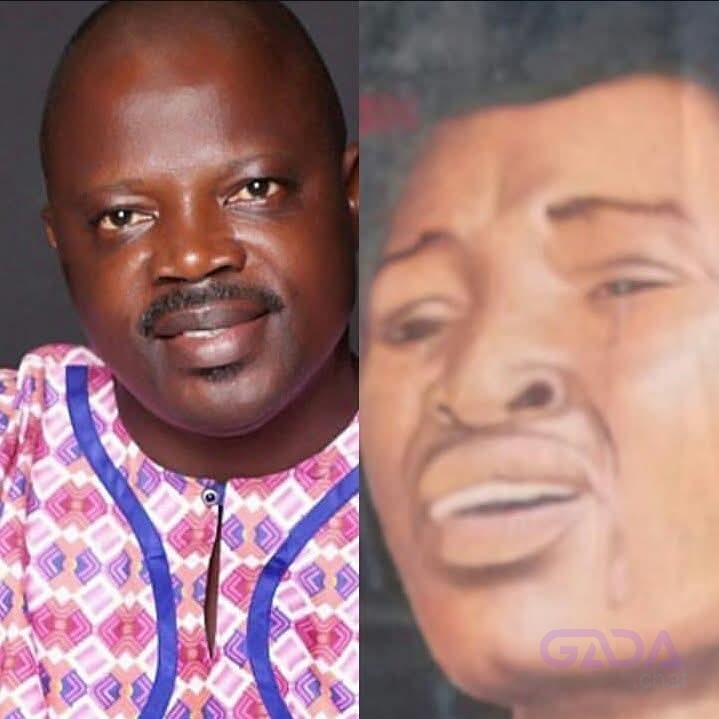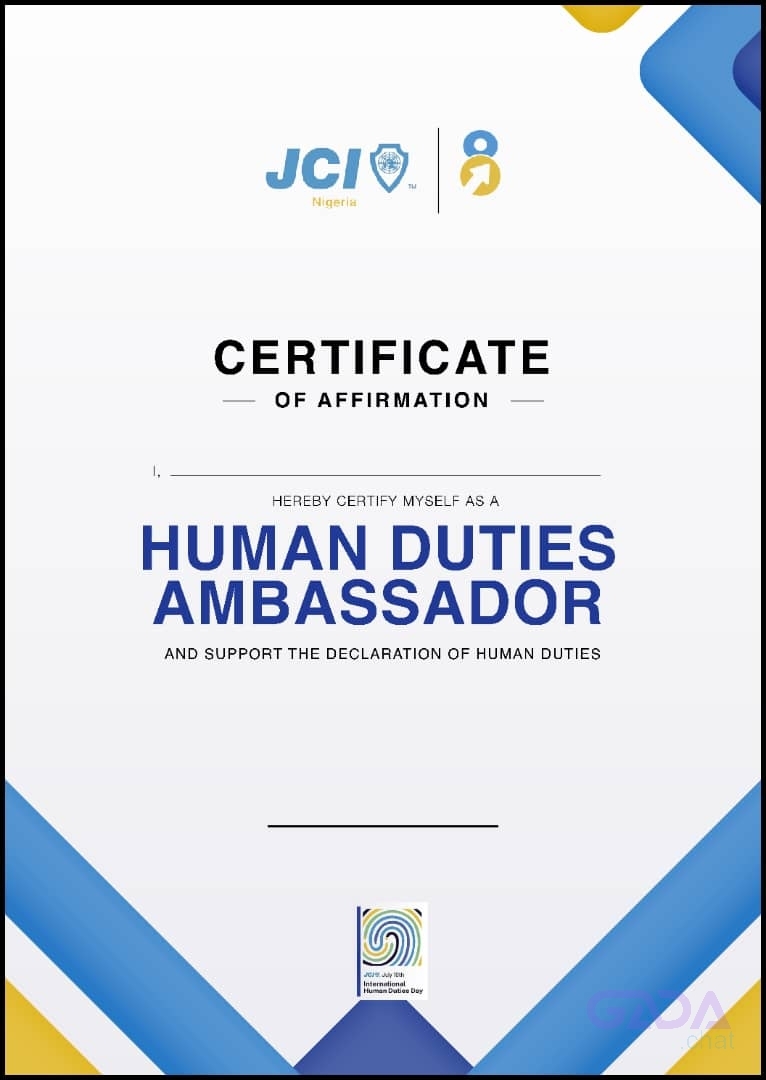#c12• WHY ALTAR SERVERS DESERVE MORE THAN JUST A NOD AFTER MASS:
Let’s address one of the most overlooked ministries in the Church: the Altar Servers.
Before I became a priest, I didn’t give much thought to altar servers. In fact, I saw them as just children in oversized cassocks, trailing incense and getting in the way. One is late, one is still tying his cincture during the Kyrie, another forgets to bring the missal to the altar, and one brave soul always drops the bell mid-consecration like it’s part of the liturgy.
But then ordination happened—and like Saul on the road to Damascus, my eyes were opened.
My dear people of God, our altar servers are the silent strength behind every Mass.
After celebrating Mass abroad, where the priest does everything from the crucifix to the chalice without assistance, I began to miss our lively, sometimes chaotic but genuinely dedicated Nigerian altar servers.
Now back home, I’ve seen another side of the story. These young boys and girls come early to church, rehearse tirelessly, and stand throughout Mass—rain or shine, hunger or heat—just to make sure the sanctuary runs smoothly.
And still, at the end of Mass, we hear:
“Thank you to the chairman of the harvest, the MC, our distinguished guests…”
And the altar servers? Not even a “God bless you.”
Let me say this clearly: DEAR ALTAR SERVERS, WE SEE YOU. WE HONOUR YOU. AND WE THANK YOU.
Some of you trek long distances to make it to morning Mass before 6:00 AM. Some wear torn cassocks and serve with dignity. Some go home hungry after multiple liturgies. Yet, you continue to serve—no complaints, no payment, just love for God.
If you’ve ever admired how orderly the Mass flows, thank an altar server.
If you’ve ever seen the priest lift the chalice with reverence, thank the one who passed it at the right time.
If you’ve ever been moved by the incense rising during solemn liturgy, thank the server whose arm is tired but still swinging with grace.
To all parishioners reading this: Stop treating altar servers like “background children.” They are liturgical ministers —the youth backbone of the Church. Let’s train them , clothe them properly, and respect their service.
Buy them new cassocks. Let them look like the soldiers of Christ they are—not extras from a church drama. Buy proper liturgical materials. Sponsor their formation. Teach them reverence, and they’ll teach the Church discipline.
To priests:
Say “thank you” after Mass. Even if they forgot to ring the bell or fumbled the incense. At least they showed up— SOME ADULTS DON’T.
And to every altar server reading this: May God bless your hands, your feet, your service, and your silent sacrifices. May He reward your hidden devotion, and may your life continue to reflect the dignity of the sanctuary.
The Mass is beautiful— but without altar servers, it would be a lot more difficult to celebrate.
Tag your parish servers and say:
WE APPRECIATE YOU!
Author:
Rev. Fr. Michael Obioma Eze,
(Archdiocese of Onitsha)
The sanctuary is not for perfect boys, but for available hearts."
#sirpopty
Let’s address one of the most overlooked ministries in the Church: the Altar Servers.
Before I became a priest, I didn’t give much thought to altar servers. In fact, I saw them as just children in oversized cassocks, trailing incense and getting in the way. One is late, one is still tying his cincture during the Kyrie, another forgets to bring the missal to the altar, and one brave soul always drops the bell mid-consecration like it’s part of the liturgy.
But then ordination happened—and like Saul on the road to Damascus, my eyes were opened.
My dear people of God, our altar servers are the silent strength behind every Mass.
After celebrating Mass abroad, where the priest does everything from the crucifix to the chalice without assistance, I began to miss our lively, sometimes chaotic but genuinely dedicated Nigerian altar servers.
Now back home, I’ve seen another side of the story. These young boys and girls come early to church, rehearse tirelessly, and stand throughout Mass—rain or shine, hunger or heat—just to make sure the sanctuary runs smoothly.
And still, at the end of Mass, we hear:
“Thank you to the chairman of the harvest, the MC, our distinguished guests…”
And the altar servers? Not even a “God bless you.”
Let me say this clearly: DEAR ALTAR SERVERS, WE SEE YOU. WE HONOUR YOU. AND WE THANK YOU.
Some of you trek long distances to make it to morning Mass before 6:00 AM. Some wear torn cassocks and serve with dignity. Some go home hungry after multiple liturgies. Yet, you continue to serve—no complaints, no payment, just love for God.
If you’ve ever admired how orderly the Mass flows, thank an altar server.
If you’ve ever seen the priest lift the chalice with reverence, thank the one who passed it at the right time.
If you’ve ever been moved by the incense rising during solemn liturgy, thank the server whose arm is tired but still swinging with grace.
To all parishioners reading this: Stop treating altar servers like “background children.” They are liturgical ministers —the youth backbone of the Church. Let’s train them , clothe them properly, and respect their service.
Buy them new cassocks. Let them look like the soldiers of Christ they are—not extras from a church drama. Buy proper liturgical materials. Sponsor their formation. Teach them reverence, and they’ll teach the Church discipline.
To priests:
Say “thank you” after Mass. Even if they forgot to ring the bell or fumbled the incense. At least they showed up— SOME ADULTS DON’T.
And to every altar server reading this: May God bless your hands, your feet, your service, and your silent sacrifices. May He reward your hidden devotion, and may your life continue to reflect the dignity of the sanctuary.
The Mass is beautiful— but without altar servers, it would be a lot more difficult to celebrate.
Tag your parish servers and say:
WE APPRECIATE YOU!
Author:
Rev. Fr. Michael Obioma Eze,
(Archdiocese of Onitsha)
The sanctuary is not for perfect boys, but for available hearts."
#sirpopty
#c12• WHY ALTAR SERVERS DESERVE MORE THAN JUST A NOD AFTER MASS:
Let’s address one of the most overlooked ministries in the Church: the Altar Servers.
Before I became a priest, I didn’t give much thought to altar servers. In fact, I saw them as just children in oversized cassocks, trailing incense and getting in the way. One is late, one is still tying his cincture during the Kyrie, another forgets to bring the missal to the altar, and one brave soul always drops the bell mid-consecration like it’s part of the liturgy.
But then ordination happened—and like Saul on the road to Damascus, my eyes were opened.
My dear people of God, our altar servers are the silent strength behind every Mass.
After celebrating Mass abroad, where the priest does everything from the crucifix to the chalice without assistance, I began to miss our lively, sometimes chaotic but genuinely dedicated Nigerian altar servers.
Now back home, I’ve seen another side of the story. These young boys and girls come early to church, rehearse tirelessly, and stand throughout Mass—rain or shine, hunger or heat—just to make sure the sanctuary runs smoothly.
And still, at the end of Mass, we hear:
“Thank you to the chairman of the harvest, the MC, our distinguished guests…”
And the altar servers? Not even a “God bless you.”
Let me say this clearly: DEAR ALTAR SERVERS, WE SEE YOU. WE HONOUR YOU. AND WE THANK YOU.
Some of you trek long distances to make it to morning Mass before 6:00 AM. Some wear torn cassocks and serve with dignity. Some go home hungry after multiple liturgies. Yet, you continue to serve—no complaints, no payment, just love for God.
If you’ve ever admired how orderly the Mass flows, thank an altar server.
If you’ve ever seen the priest lift the chalice with reverence, thank the one who passed it at the right time.
If you’ve ever been moved by the incense rising during solemn liturgy, thank the server whose arm is tired but still swinging with grace.
To all parishioners reading this: Stop treating altar servers like “background children.” They are liturgical ministers —the youth backbone of the Church. Let’s train them , clothe them properly, and respect their service.
Buy them new cassocks. Let them look like the soldiers of Christ they are—not extras from a church drama. Buy proper liturgical materials. Sponsor their formation. Teach them reverence, and they’ll teach the Church discipline.
To priests:
Say “thank you” after Mass. Even if they forgot to ring the bell or fumbled the incense. At least they showed up— SOME ADULTS DON’T.
And to every altar server reading this: May God bless your hands, your feet, your service, and your silent sacrifices. May He reward your hidden devotion, and may your life continue to reflect the dignity of the sanctuary.
The Mass is beautiful— but without altar servers, it would be a lot more difficult to celebrate.
Tag your parish servers and say:
WE APPRECIATE YOU!
Author:
Rev. Fr. Michael Obioma Eze,
(Archdiocese of Onitsha)
The sanctuary is not for perfect boys, but for available hearts."
#sirpopty










